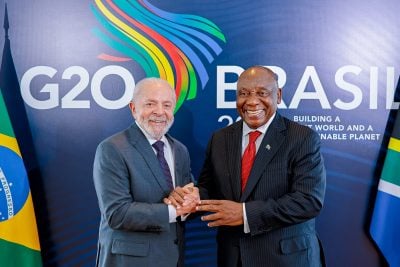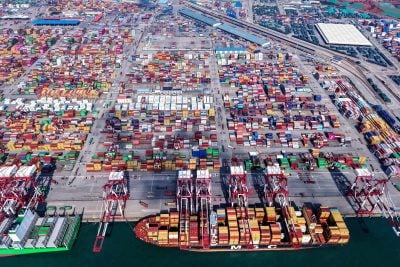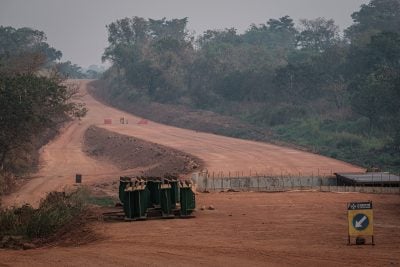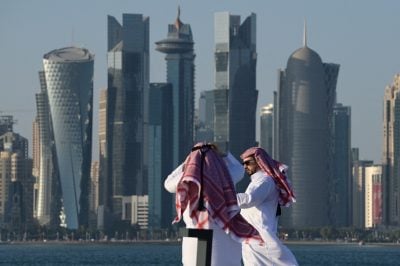Ordinary Africans only stand to lose from a growth model premised on exploitation and economic devastation. Africa cannot rise without Africans rising.
In the last decade, Africa has seen a remarkable turnaround. Africa’s real GDP has more than doubled since 2000, and in 2014, six of the world’s 10 fastest-growing countries were in sub-Saharan Africa.
This new Africa – ‘Africa Rising’, as the dominant narrative has become – is a story worth celebrating after so many years of bad news and struggles.
But there is an important question we all should be asking: How can Africa sustain its growth and break from its past once and for all? Furthermore, can this growth have depth and translate into global competitiveness, good jobs, rising incomes, quality education and health, and improving standards of living for its citizens?
The answer is obvious. Africa can make this great transition, as other regions have done, but only through deliberate, sustained and implementable policies.
None of us can pretend that the process will be easy or that it will evolve naturally as some have suggested. Change only comes through deliberate decisions and the will, determination and energy to follow through.
There is an African saying: “If you know the beginning well, the end shall never trouble you.” For economic transformation and sustainable development to become the norm in Africa, it is imperative to understand the perils and pitfalls of the past.
Get it right
The underlying issues are complex and multi-faceted. Transformation is a long-term process spanning two or three decades. The experiences of countries in Asia and elsewhere teach us that. Conceived properly, the vision should involve all segments of society and belong to the nation.
The process requires getting the balance right between the state and private enterprise – and having effective mechanisms for the two to support each other in the pursuit of economic learning, development and growth.
Businesses, large and small, lead in producing and distributing goods and services, upgrading technologies and processes, diversifying production and exports, and expanding employment opportunities.
But they cannot operate alone. States must create an enabling environment while also setting the national economic vision and strategy, as well as crafting policies, public investments and incentive packages to support that strategy.
Organised labour and civil society have roles too. Organised labour is a small fraction of the labour force in most African countries, but it is important to the modern economic sectors that often spearhead transformation – and also to support the ongoing development of workers.
Strong third-party accountability mechanisms – independent media, academics, think-tanks, and other parts of civil society – can ensure that close collaboration between the state and private sector does not degenerate into crony capitalism and corruption.
Good governance
The research carried out at the African Centre for Economic Transformation and elsewhere suggests that many of the building blocks of a transformative foundation are well within our grasp – the so-called low-hanging fruit.
Encouragingly, many African countries have
already drawn up their transformation agendas and some are implementing far-reaching reforms.
We are working with some of Africa’s staunchest development partners and new players from the Global South, particularly from Asia, on transformation strategies for several countries, including some that are emerging from destructive conflicts. The road is long but the journey has begun.
But as US President Barack Obama gets ready to make what will probably be his last trip to Africa as President when he visits Kenya in July, one is reminded of his trip to Ghana in July 2009. At that time, buoyed by striking growth figures, the tone of the discussion about African development had begun to change. Economies across the continent surged, from large counties like South Africa and Nigeria to the smaller Rwanda. But while acknowledging this progress, Obama pointed out that much of the extraordinary promise that awaited Africa when his father had come of age decades before had not been fulfilled. To realise that promise, one must recognise a fundamental truth: development depends on good governance.
“That is the ingredient which has been missing in far too many places, for far too long,” he said. “That is the change that can unlock Africa’s potential. And that is a responsibility that can only be met by Africans.”
There is no need to elaborate on that simple and all-encompassing observation. The challenge for all of us is to learn from the past and continue to move forwards in a way that will transform, not just grow, the African continent – so that in another 50 years, world leaders no longer feel the need to tell us that it’s time to get our act together but will simply marvel at what we’ve accomplished.
K.Y. Amoako is President of the African Centre for Economic Transformation.
Want to continue reading? Subscribe today.
You've read all your free articles for this month! Subscribe now to enjoy full access to our content.
Digital Monthly
£8.00 / month
Receive full unlimited access to our articles, opinions, podcasts and more.
Digital Yearly
£70.00 / year
Our best value offer - save £26 and gain access to all of our digital content for an entire year!
 Sign in with Google
Sign in with Google 


